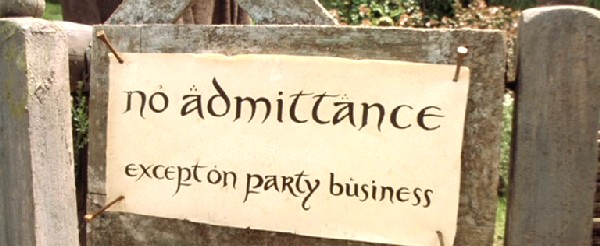
<< The premiere of The Hobbit: Desolation of Smaug is this Friday, and tonight I finished my costume!
Tauriel (as I've explained in my 'Plan' post) is an elf of Mirkwood (aka Greenwood). She's unique to Peter Jackson's films, as she did not appear in the book - in fact, very few/no female characters appeared in the book, so I guess this is a nod to diversity.
This costume took me about a week to make! Really worth it - it's not just for the premiere, as my birthday party (1st-2nd Feb) is going to be Tolkein themed. Hopefully I won't break it between now and then!
Making the Breast-Plate (and other armour)
I decided to make my armour out of papier mâché. I forgot to take pictures (except of the final product) but here is just about how I did it (this is how I did the breast-plate, but I also used this method to make greaves and bracers).
1. Put on an old, form fitting T-shirt that you don't mind cutting to bits.
2. Cover yourself in duct tape, the whole area that you want to be 'armour' - it should look like you have duct tape armour at this point. Don't worry about going too tight, just remember that it will need to fit you when you put the final product on.
3. Get a pair of heavy duty scissors and get a friend to cut you out of your duct tape prison - this should be in a straight line from the top of your back, to the bottom - more or less following your spine downwards.
4. Duct tape the back together again.
5. Stuff your T-shirt with sheets, cushions, etc, until it looks the same shape as you when you're in it
6. Papier mâché the form with old newspaper and a PVA glue/water mix - I did about 50/50 measures, but you could get away with less PVA if you don't have much. Do about 10 layers, and make sure you do them evenly. Let it dry.
7. Cut the back as you did before when trying to remove yourself from it, and peel the T-shirt and duct tape from the inside of the shell. Don't worry if your first layer of papier mâché catches on it, if you have enough layers, this shouldn't be a problem.
8. Paint! I wanted mine to look like leather, so used a dark brown acrylic paint, but you could make it look like metal if you wanted. I added a design to it that I saw on Tauriel's greaves on an official Hobbit toy, as I wasn't convinced that I could copy the design of her breast-plate with the materials I have. I used the same design on my bracers and greaves to tie it all in together.
9. Once dry, use a stanley knife and a knitting needle to punch through holes for laces. Your armour will be able to be tied onto you corset-style.
10. I covered it with another layer of PVA glue to make a more leathery effect.
11. Add laces/string and enjoy!
Making the Dress:
I can't really talk you through exactly how I went about making my dress, as I forgot to take pictures (sorry), but to sum up, I used tailor's chalk to mark out my template for my dress and left room for seams. I sewed the different panels of the dress together, using a dark green fabric and dark green thread. (Sorry again that I can't go into more detail).





















.jpg)


